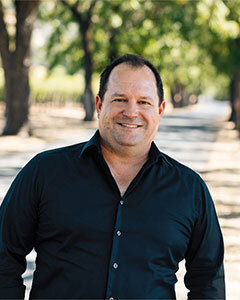Published in the Spring 2025 issue of Artisan Spirits Magazine.
“Private labels are growing and growing strong.” – Simon Cutts, Senior Director of Retail Partners, SPINS Research Firm (RetailWire, November 2024)
According to a November 2024 Supermarket News report, sales of private label alcohol brands were up 12% over the past 52 weeks, up 15% year-to-date, and up 23% in comparison to 2022. Private label brands provide an extraordinary opportunity to generate an additional source of revenue.
Private Label Brands
Private label brands or “store-exclusive brands” are brands that are created for sale for a specific retailer. While the brand can be transparently marketed as a private label brand – Costco’s Kirkland brand for example – most retailers prefer that the brand has its own unique name. This allows for the brand to have its own identity, like any other established brand, rather than being directly associated with the store.
The Two Types of Private Label Brands
It is important to understand the two types of private labels brands and how they might fit into your business model.
- Traditional Private Label Brands – A retailer will purchase bulk spirits and package them under their own brand name. If you are providing bulk to the retailer, you often have visibility in what you need to produce and when and therefore, visibility of your cash flow. The retailer will also be responsible for all marketing efforts for the brand.
- Control or Exclusive Brands – As the distiller, you retain ownership of the brand and can offer the brand to the retailer that makes you the best deal. However, the onus is on you to sell and market the brand. If a deal falls through with your current retailer, it’s up to you to sell it to another retailer.
While a control or exclusive private label brand puts more responsibility on the shoulders of the distiller, the availability of high-quality bulk spirits have created a unique opportunity to take advantage of these programs.
The Bulk Spirits Opportunity
Bulk spirits play a critical role in the production of private label brands.
- Because bulk spirits are finished product that is ready to be bottled or blended and then bottled, they allow brands to rapidly react to the short timelines often required by retailers for private label opportunities.
- There is a huge portfolio of products to choose from of varying quality levels and types, meaning that you aren’t beholden to only taking on opportunities that align with your current distillery’s brand, production or price points.
- They are a very cost-efficient solution vs. distilling in-house and allow for rapid scaling, making them a very nimble solution.
Spirits for the Private Label Market
There is demand for a wide range of spirits in the private label market. Here are some top-level opportunities:
- Gin – There has been a rise in popularity over the past several years, especially for new age styles that focus on botanicals other than juniper.
- Vodka – A hugely versatile spirit for usage in cocktails with a large customer base. There has been a growth in interesting, flavored vodkas, especially ones that can boast all natural flavors.
- Whiskey – Bulk spirits provide the opportunity of access to premium, aged whiskey without having to patiently wait years for it to mature.
- Rum – There has been an increase in demand for high-quality, sipping rum and spiced rum.
- Tequila, Mezcal, and Other Agave Spirits – Cocktail culture and increased interest for premium tequilas led to a market value of $11 billion in 2023 (Fortune Business Insights, December 2024). Along with it, interest in mezcal and agave spirits has grown. Agave spirits do not need to be made in Mexico, so it is a great option for producers looking to add a tequila-style flavor profile to their portfolio that don’t have the ability to source from a Mexico-based producer.
Private Label Brands & Consumers
When private label brands are given their own unique name and branding, consumers can rarely differentiate them from any other brand on shelf. What consumers are very in tune with though, is the often more affordable price point of private label brands, making them highly attractive at the point of purchase. According to an April 2024 Statista analysis, 68% of consumers that choose private label brands made their decision based on the lower price point.
While spirits sales largely declined in 2024, private label brands are proving to be an exception to the rule (Supermarket News, November 2024). The current availability of bulk spirits is working together with this demand, creating an opportunity to develop additional streams of revenue without cannibalizing core brand offerings and providing a faster go-to market strategy.
CF Napa Brand Design can help further streamline a private label brand’s path to market through their off-the-shelf catalog of available designs. This process allows brands to move from ideation to final package design in a fraction of the time – as little as two weeks. CF Napa has developed private label brands through their off-the-shelf program for distilleries, wineries, and many nationwide retailers.
- The Core 4 – Setting the Foundation for Your Brand - September 19, 2025
- The Rise of Low & No Alcohol Spirits: A $4 Billion Bandwagon - July 21, 2025
- The Private Label Opportunity and Bulk Spirits - March 25, 2025


Leave a Reply